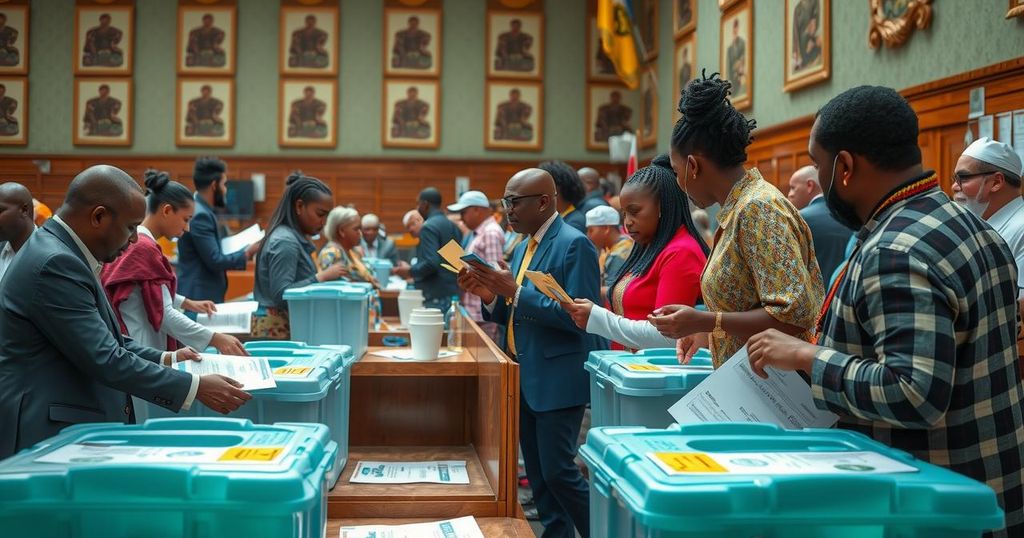World news
ABDALLAH SAMBI, AFRICA, AUSTRALIAN ASSOCIATED PRESS, AZALI ASSOUMANI, COMOROS, ELECTION FRAUD, GOVERNANCE, GOVERNMENT, HAMIDOU KARIHILA, HOPE OF THE COMOROS, INDIAN OCEAN, INDIAN OCEAN ARCHIPELAGO, JUWA, NO, NOUR EL - FATH, OPPOSITION, POLITICS, PRESIDENTIAL ELECTION, REUTERS, SUPREME COURT
Fatima Alavi
0 Comments
Comoros Set to Elect New Parliament Amid Political Tensions
On Sunday, voters in Comoros will elect representatives for the 33-seat parliament amid allegations of electoral misconduct from the opposition against President Azali Assoumani. Approximately 338,000 voters are registered, with nearly 100 candidates contesting the elections. Assoumani’s governance and potential succession plans for his son have prompted heated debate and calls for boycott from some opposition factions. Results are expected by Friday.
Voters in Comoros are set to choose representatives for the 33-seat parliament on Sunday, following the controversial re-election of President Azali Assoumani last year, which opposition groups have claimed was characterized by extensive irregularities. Despite these accusations, officials from the ruling party vehemently deny such allegations. The electoral process is underway with approximately 338,000 registered voters participating. Almost one hundred candidates have officially been selected by the Supreme Court to vie for parliamentary seats.
These elections come amid growing concerns regarding Assoumani’s leadership, as his opponents express fears that he is paving the way for his eldest son, Nour El-Fath, to succeed him after his current term expires in 2029. Having ascended to power in 1999 through a coup, President Assoumani has won three elections to date and had recently conferred significant powers upon his son, designating him to oversee all governmental operations. The political landscape is further complicated as several opposition parties, including the Juwa party led by former President Ahmed Abdallah Sambi—who received a life sentence in 2022—are advocating for a boycott of the elections, while others have opted to participate.
One candidate from the opposition Hope of the Comoros party, Hamidou Karihila, voiced his stance by stating, “The Azali regime is weakened… by participating in these elections we are contributing to further exposing the flaws in its system and accelerating its inevitable fall.” This election is critical for Comoros, as the results are anticipated to be announced by Friday, indicating the electorate’s sentiments toward the ruling government and its implications for future governance.
In the context of Comoros, the political climate reflects a history of instability and controversial leadership under President Azali Assoumani. His administration has faced criticism for alleged authoritarian practices and the manipulation of electoral processes. The previous parliamentary elections took place in January 2020, and this current election introduces a new cadre of candidates while highlighting the ongoing tension within the political sphere. The deepening opposition against Assoumani’s regime has raised questions about the direction of the country as it approaches a critical juncture in its political history.
The parliamentary elections in Comoros symbolize a pivotal moment for the country’s democratic processes amidst claims of political volatility. With a significant portion of the opposition advocating for non-participation, the engagement of remaining parties may expose the inherent flaws within the current regime. As results are expected shortly, the outcomes will undeniably shape the political landscape moving forward and could signal a shift in the public’s support for President Assoumani’s governance.
Original Source: www.thesenior.com.au




Post Comment